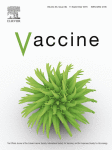Ver ítem
- xmlui.general.dspace_homeCentros e Institutos de InvestigaciónCICVyA. Centro de Investigación en Ciencias Veterinarias y AgronómicasInstituto de VirologíaArtículos científicosxmlui.ArtifactBrowser.ItemViewer.trail
- Inicio
- Centros e Institutos de Investigación
- CICVyA. Centro de Investigación en Ciencias Veterinarias y Agronómicas
- Instituto de Virología
- Artículos científicos
- Ver ítem
Cyclophosphamide enhances the release of tumor exosomes that elicit a specific immune response in vivo in a murine T-cell lymphoma
Resumen
Exosomes are 60–150 nm small extracellular vesicles (EVs) released by most cells. Tumor-cell-derived
exosomes, used as a vaccine, elicit a specific cytotoxic response against tumor cells, usually with a greater
immunogenicity than tumor-cell lysates. However, the number of exosomes isolated from culture cells is
limited. In recent studies, it was observed that cells respond to different stressor stimuli such as cytotoxic
drugs, hypoxia, acidosis, or
[ver mas...]
Exosomes are 60–150 nm small extracellular vesicles (EVs) released by most cells. Tumor-cell-derived
exosomes, used as a vaccine, elicit a specific cytotoxic response against tumor cells, usually with a greater
immunogenicity than tumor-cell lysates. However, the number of exosomes isolated from culture cells is
limited. In recent studies, it was observed that cells respond to different stressor stimuli such as cytotoxic
drugs, hypoxia, acidosis, or radiation by increasing the release of EVs.
In this study, using the murine LBC T-cell lymphoma, we found that cyclophosphamide significantly
increased EVs yield. These EVs express exosome marker proteins such as TSG-101, CD9, CD81, and
CD63. Furthermore, similar humoral and cellular immune responses were induced in vivo by EVs isolated
from LBC-tumor cells whether they were grown under normal culture conditions (EVs C) or in the presence
of cyclophosphamide (EVs CTX). Mice vaccinated either with EVs C or EVs CTX were similarly protected
against an intraperitoneal challenge with LBC tumor cells. CD4+ and CD8+ IFN-c secreting cells
were induced in immunized mice and a specific cytotoxic cellular immune response was elicited
in vitro. These results demonstrate that a Th1 response was induced by immunization with the EVs.
Our findings suggest that treatment of tumor cells with cyclophosphamide is a useful method to enhance
the secretion of EVs in sensitive cell lines without altering their antitumor properties and thus may be
used to produce antigens for future design of cancer vaccines.
[Cerrar]

Autor
Cocozza, Federico;
Menay, Florencia;
Tsacalian, Rodrigo Farid;
Elisei, Analia;
Sampedro, Pura;
Soria, Ivana;
Waldner, Claudia Inés;
Gravisaco, María José;
Mongini, Claudia;
Fuente
Vaccine 37 (12) : 1565-1576. (14 March 2019)
Fecha
2019-03
Editorial
Elsevier
ISSN
0264-410X
Formato
pdf
Tipo de documento
artículo
Palabras Claves
Derechos de acceso
Restringido
 Excepto donde se diga explicitamente, este item se publica bajo la siguiente descripción: Creative Commons Attribution-NonCommercial-ShareAlike 2.5 Unported (CC BY-NC-SA 2.5)
Excepto donde se diga explicitamente, este item se publica bajo la siguiente descripción: Creative Commons Attribution-NonCommercial-ShareAlike 2.5 Unported (CC BY-NC-SA 2.5)

